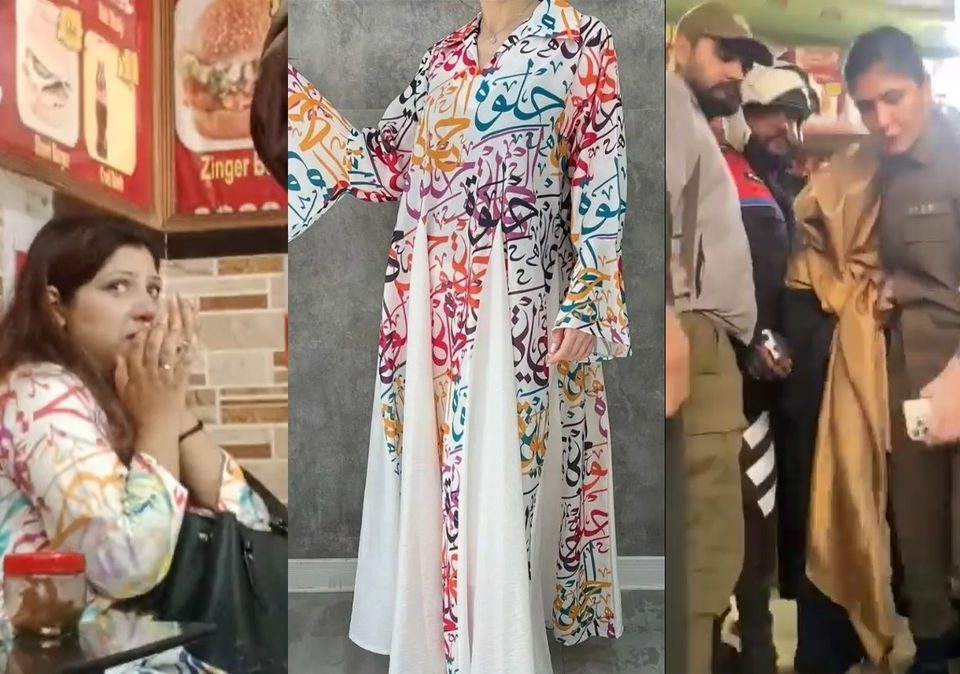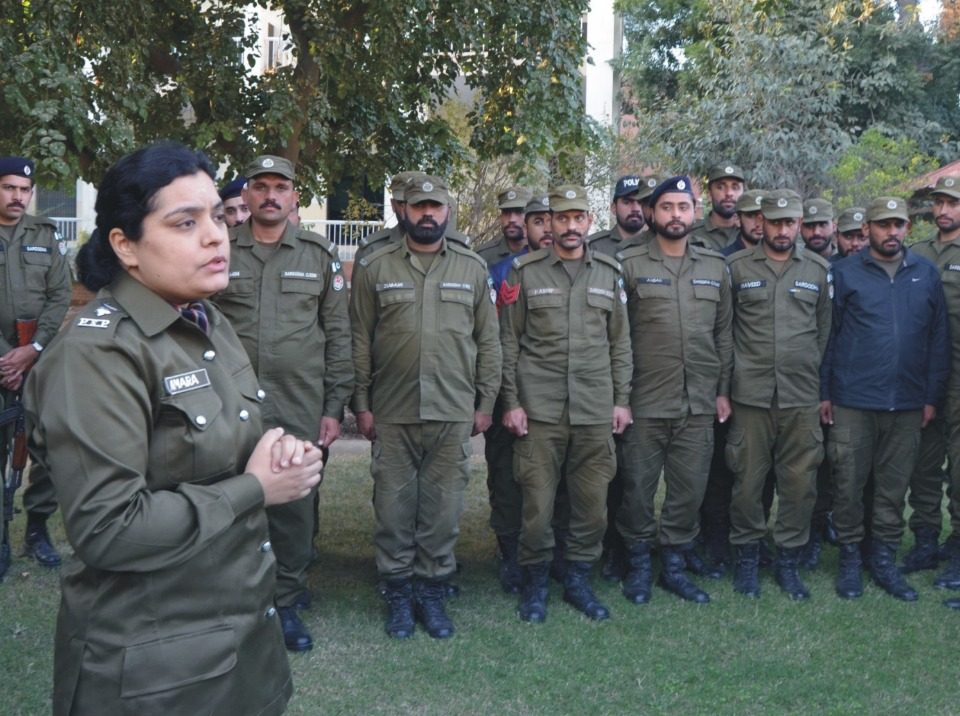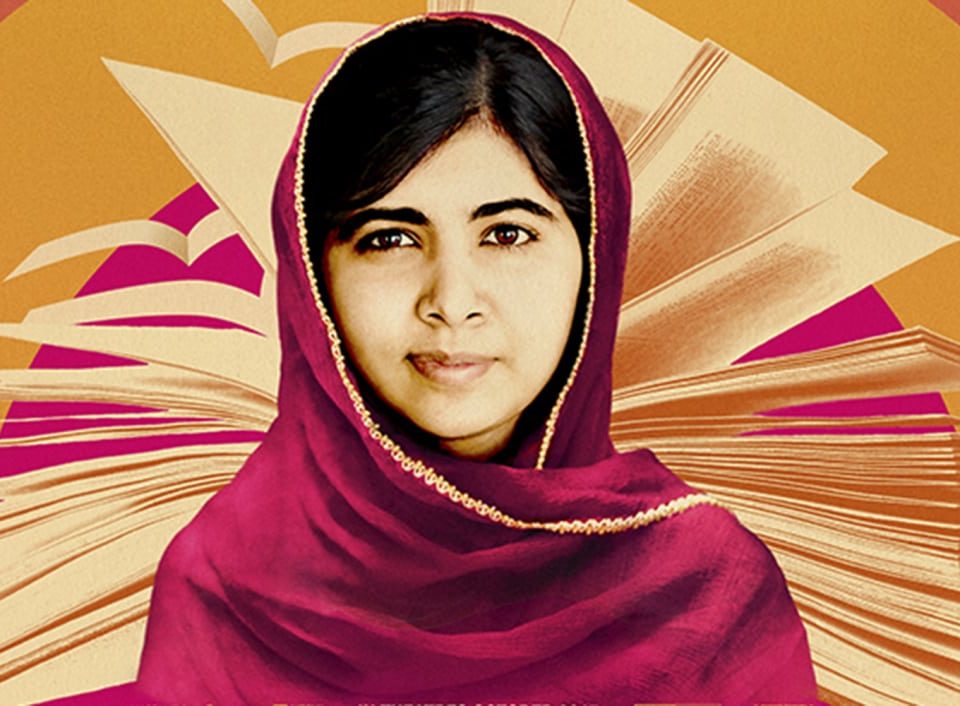PAKISTAN WOMEN’S DAY: IT’S ABOUT TIME WE START RESPECTING SHIREEN MAZARI AND ASMA JAHANGIR
Showcase Ceremony of 10-Day Electronic Media Training Course
FOR A PAKISTANI JOURNALIST, NAVIGATING THE PERSONAL IS A HARD TASK
For a young woman, reporting news in Pakistan is no easy job.
Zar Nigor, an aspiring writer from Gilgit Baltistan, says she doesn’t feel completely free as a journalist.
“There are so many taboos,” she says.
As a first step in learning to tackle some of these taboos and get a start as a journalist, Zar was a part of a group of 40 “Educate a Girl” scholars who attended a workshop titled “The I in Reportage,” taught by author and journalist Alex Preston. The workshop was held at the British Council in collaboration with the Dawood Foundation’s “Educate a Girl” program earlier this week in an attempt to highlight voices that have long been underrepresented.
While Preston’s talk was full of informative and helpful tips on writing what really stood out was the audience. A shared dream of putting pen to paper connected these girls from varied backgrounds.
All the young women in attendance had received a sponsored scholarship in media studies at the Institute of Journalism. The Dawood Global Foundation’s Educate a Girl — Mission 1000 project, in partnership with the Institute of Journalism is an opportunity for disadvantaged women to become “super journalists” by connecting them with media outlets they would otherwise not have access to.
DGF President Tara Dawood said: “When most of these girls got started they were doing this to pass time. They needed to be pushed and motivated but now they are ambitious and confident.”
Six hundred young women are either currently enrolled in the program or have graduated. Those who have graduated have found jobs as news anchors, print journalists and bloggers. The most heartwarming trait of the venture is how it motivates participants to ‘pay it forward’: two graduates have already used their first paychecks to sponsor two more girls.
This was not the first seminar arranged for Educate a Girl but the topic seemed especially significant. Being true to your own voice becomes even more difficult when that voice is quashed. Zar Nigor has gone through this silencing.
She said: “You are culturally not allowed to tackle so many problems related to young people and women because you can’t talk about reproductive health, harassment or child abuse.”
Despite some opposition, with the support of her parents Zar is part of the first generation in her family to get an education. The internet and the democratization of journalism has been instrumental in allowing her unique perspective to be heard and shared.
Preston’s workshop also stressed thet fact that, as in Zar’s case, the background and subjective perceptions of the journalist can be instrumental in getting readers interested in issues they might have otherwise overlook.
“Each of you already has a unique and individual story to tell,” Preston told all the participants.
To illustrate the importance of subjective voice in modern journalism he shared a snippet of popular podcast “Serial.” Its 12 episodes cover the murder of high school student Hae Min Lee, which took place near Baltimore in 1999. Each episode takes a different angle on the crime and the conviction of Lee’s ex-boyfriend Adnan Syed, who has been in prison for fifteen years based on one witness’s shaky testimony. But what has really enthralled audiences all over the world is the way narrator Sarah Koening embeds herself in the story, making her quest for answers relatable. She doesn’t shy away from the ‘I’ in journalism; her conversational tone and dedication to humanizing each interview subject and curiosity creates a special kind of intimacy that an impartial omniscient reporter wouldn’t be able to achieve. It is as much the story of how a journalist goes about reporting a story that has piqued her interest as the actual murder.
This approach also compels us to self examine our own gut instincts. Are we convinced of Adnan’s innocence because Sarah is, or is that assumption based on the objective evidence she provides? By breaking the stodgy rules of journalism and making herself the protagonist of the story Koening commands our attention in a way a headline in a newspaper would not.
During the Q&A session following the workshop, Zar asked about countering societal pressures: “People make fun of your family,” she said. “[They say] your kids know about these things which means they have experienced it all.”
This led to a conversation about helicopter reporting. Alex acknowledged this tension, admitting that while he can report on a topic in Pakistan and then safely leave it behind, a person who has to live within a community needs to learn to balance bravery and subtlety. He said “It is the job of journalist to create narratives that explain the chaos… to be on the side of the silent and give voice to the voiceless.”
The most striking take-away from the workshop was this: All the dazzling word play in the world means nothing without emotional truth. Hollow writing which follows all the rules has no impact on anyone.
An easy and shallow retelling of Zar Nigor’s story may put her at odds with the traditionalists in her community. But where others might see an enemy, Zar sees potential. Her experiences have been good and bad, conservative attitudes have caused hurdles, but support from family and friends keeps her from giving up. An outsider could never get through to Zar’s community because they wouldn’t understand their problems. Zar can make an impact simply because she is a community member, she sees hope just as clearly as she sees the shortcomings. Minimizing her personal perspective for the sake of objectiveness would be a waste of the opportunity she has. Despite the difficulties she has faced Zar holds no grudge against anyone – instead she is wistful.
“The people of my area are not bad… actually they are innocent. There are parts in Gilgit where people are so deprived from their fundamental rights…I wish you could visit one day.”
(Courtesy by Dawn)





